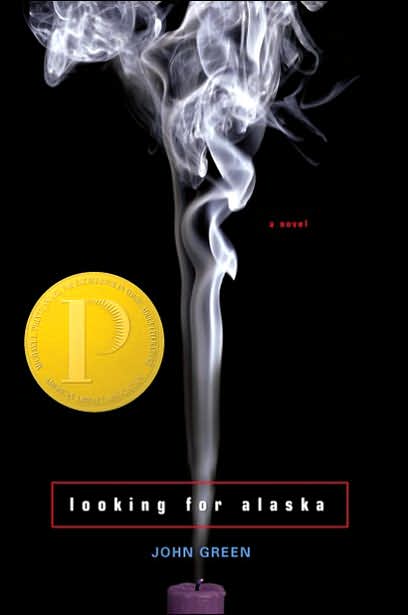
All right, intros first. I’m Jordan, and I write things that are sometimes YA, sometimes SF, sometimes mostly totally insane. Usually all three, to a certain degree. Right now I’m working on a monstrosity about triplets and comic books and what happens when they try to take over the world, and I’ll be delivering the SF primer this evening.
Hopefully I’m qualified enough....let me give you my credentials. Been writing ever since I learned spaces separated words and not little squiggly marks, in sticker-covered notebooks about monsters and aliens and creatures with heads too big for their bodies. We called it The Notebook Club, you might call it horrendous, but here we are, talking about fantasy and science fiction and other insanities of the like. Not that much of a departure, although I’d like to think I’ve advanced a little in fourteen years!
Okay, enough of that, now onto the topic of this post....Why Speculative Fiction?
That’s a good question. You could very well ask that of any fiction, and get an array of answers. For fun, to get away from it all, to learn something or pass the time, to connect, to understand....
Speculative Fiction, in this context, is a large category of fiction that encompasses many different genres: fantasy, science fiction, horror, supernatural, alternate histories, to name a few. Speculative Fiction has been said to be that “what if?” factor, the “what if a giant shark started eating all these people outside some seaside resort town?”
BANG! Suddenly you got Jaws.
“What if we could somehow clone dinosaurs and put them into this giant theme park on an island and sit back to see what happened?”
Jurassic Park.
“What if vampires and werewolves lived among us, in secret, and we just didn’t realize it?”
“Wait wait wait,” you say, interrupting my well-crafted definition. “But none of that is really
real. Those things don’t really happen, or can’t, or aren’t likely. So what does it matter to me, to my life in the modern world full of computers and copy machines and microwave breakfast burritos?”
Ah, but you can rightly ask that question about
any kind of fiction. Fiction, by its definition, is something imaginary, made up. Totally fake. There is someone out there who has never tasted the delights of microwave breakfast burritos, and could very well wonder the same about your magnificent modern world.
Really, then, it’s not about something being possible or not, or likely, or logical. Most everybody would agree that “truth is stranger than fiction,” anyway. Things in life just don’t happen the way they do in books, all wrapped up tightly with a bow, with properly balanced rise and fall of tension, clearly established goals and identified antagonists, subplots that wrap themselves up neatly right before the climax...
“In reading a novel, any novel, we have to know perfectly well that the whole thing is nonsense, and then, while reading, believe every word of it. Finally, when we’re done with it, we may find--if it’s a good novel--that we’re a bit different from what we were before we read it, that we have been changed a little, as if by having met a new face, crossed a street we have never crossed before. But it’s very hard to
say just what we learned, how we are changed. The artist deals with what cannot be said in words....All fiction is metaphor. Science fiction is metaphor.”
So said Hugo and Nebula Award-winning novelist Ursula K. Le Guin in the introduction to her classic science fiction novel
The Left Hand of Darkness, perhaps to answer the question, why the hell did you write a book about androgynous creatures on some ice planet far, far into the future?
Because, she says. It’s a metaphor.
“A metaphor for what?”
She answers: “If I could have said it non-metaphorically, I would not have written all these words, this novel.”
What it comes down to is fiction addresses things that are difficult to say succinctly, in just a few words: what it’s like to lose someone in death, how one goes about getting a girlfriend, what issues are raised when that girlfriend happens to be green and you and all your friends are red....
No one is really red or green, not without considerable effort. But some people are white, or black, some even yellow, and a lot of people have made a big deal over those varied shades of flesh throughout history.
It’s easy to dismiss something with magic and fairies and spaceships and alternate universes as inconsequential and pointless, since everyone knows those things aren’t real, never were and never will, and if they are it won’t be for a long long time.
But if you’re going to think of it that way you might as well dismiss everything labeled “fiction,” because everyone knows that fiction isn’t “real.”
That doesn’t make it any less relevant to us now, in our modern lives with our microwave breakfast burritos. What if the meat in that burrito wasn’t really meat, or worse, was still alive, and only lying dormant waiting for its chance to take over the world....
Don’t worry, it’s not real. Or is it..?
















 Name: Bethany Griffin
Name: Bethany Griffin Name: Hannah Moskowitz Esq. (I have no idea what esq. means, but I like it.)
Name: Hannah Moskowitz Esq. (I have no idea what esq. means, but I like it.) Name: Sage
Name: Sage Name: Sasha Vivelo
Name: Sasha Vivelo Name: Suzanne Young
Name: Suzanne Young